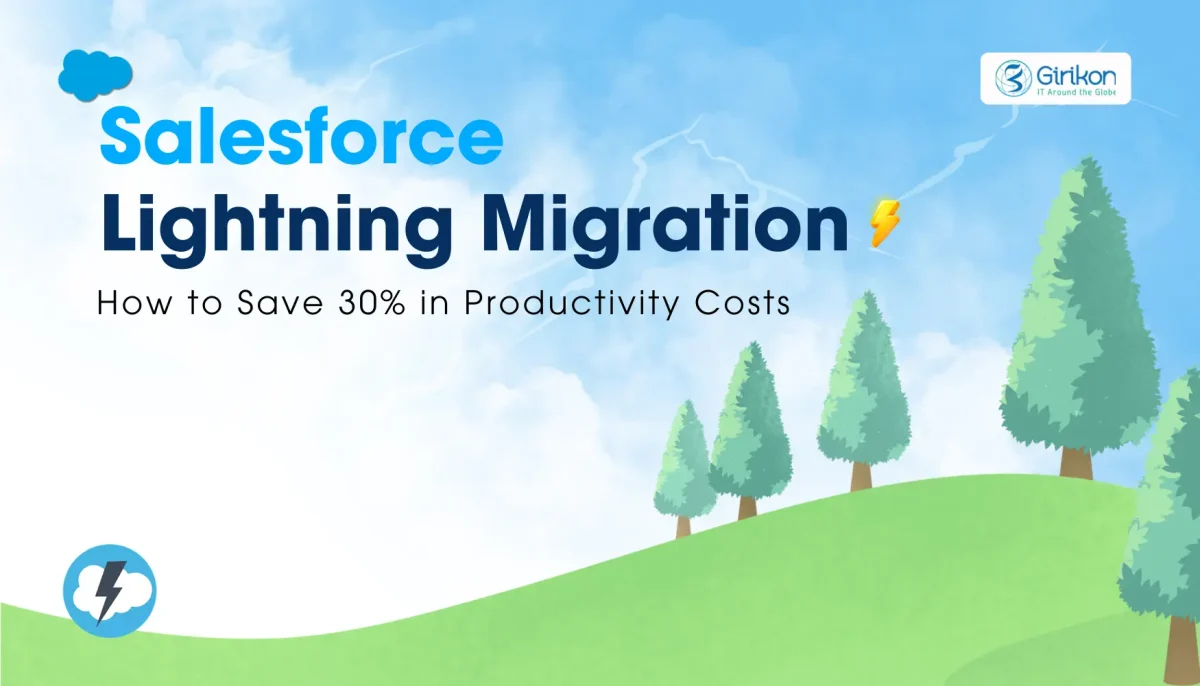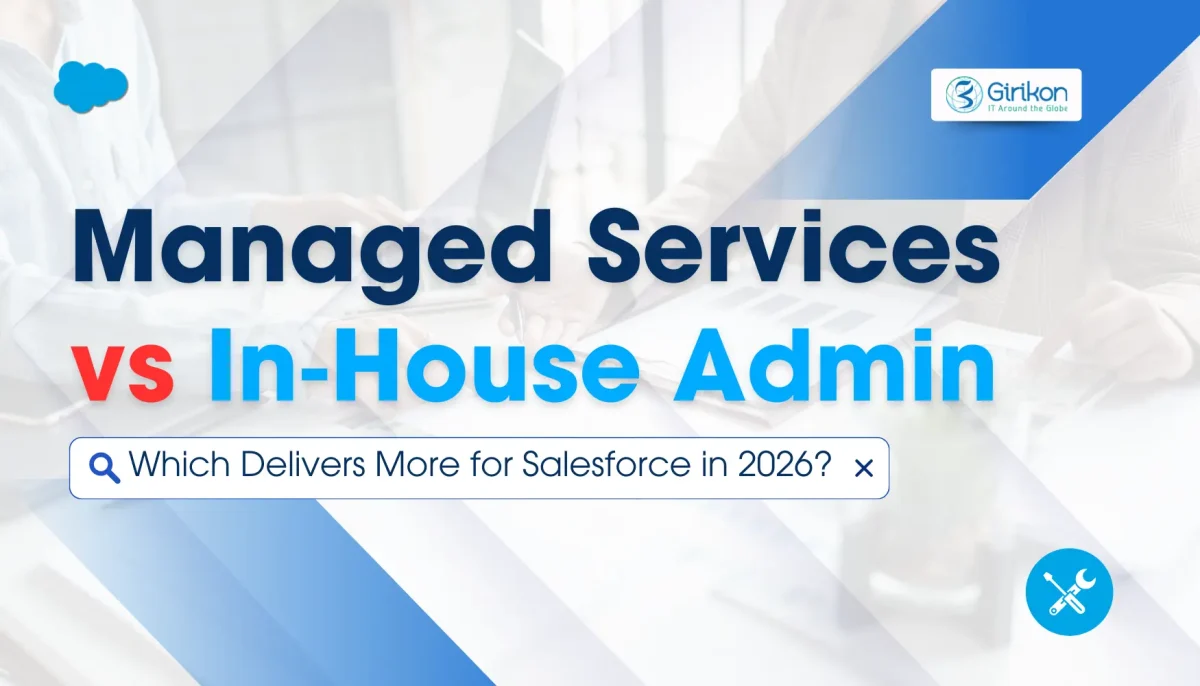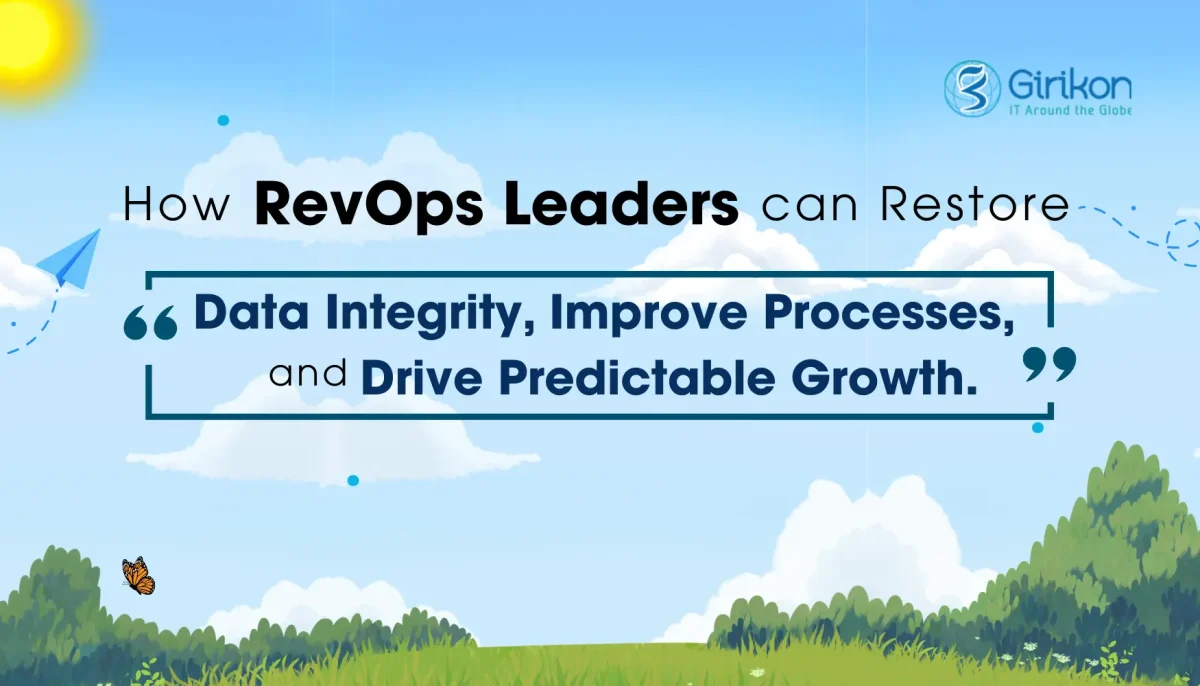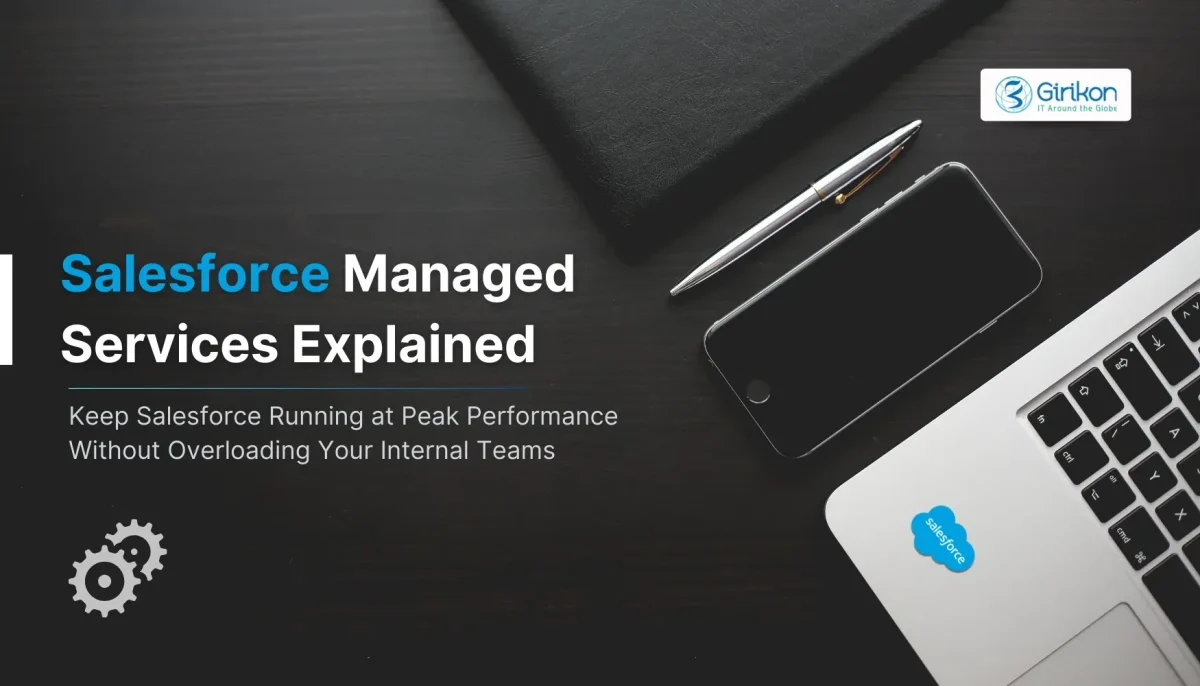Customer relationship management platforms (CRM) is no longer a good to have system for businesses. It has rather become a necessity for organizations looking to manage their business processes while ensuring superior customer relationship. While there is no shortage of CRM platforms available, Salesforce has become a potent force to reckon with in the CRM space. With its wide range of capabilities, Salesforce enables organizations to drive business growth by transforming customer experiences. However, implementing Salesforce isn't easy. Moreover, given its growing complexity, the time required for implementing it stretches besides mounting consulting fees. So, if you are looking to avail Salesforce Consulting Services from a certified partner then the key to generating greater ROI lies in managing these extra costs. While managing these additional costs might appear to be difficult, there are certain practices that can help organizations manage their spend without compromising quality. Let’s explore how to minimize rising Salesforce consulting costs using the latest practices:
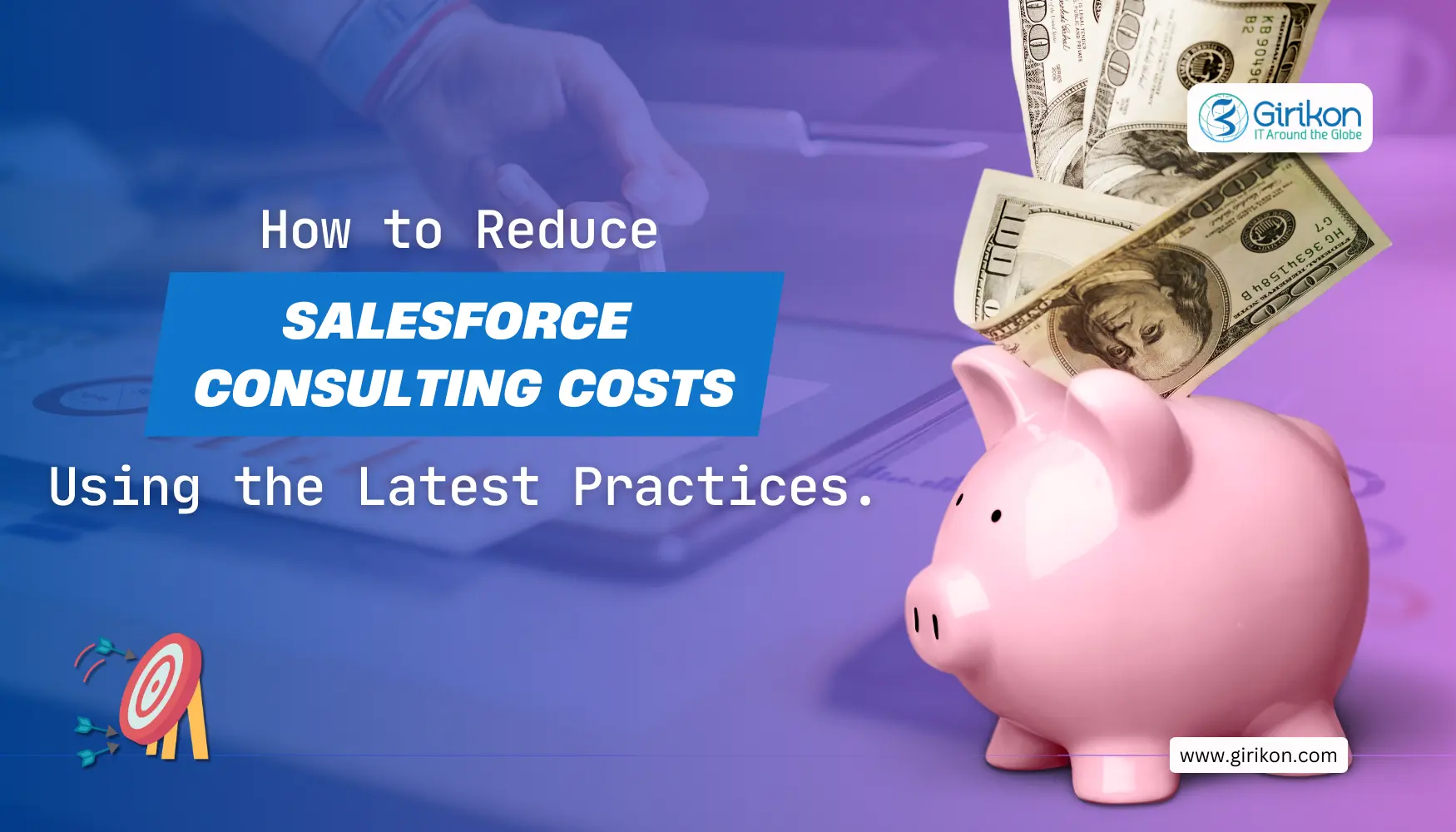
Clear Vision and a Scalable Architecture
A major cause of rising consulting costs is the lack of insufficient upfront planning. Without a well-defined roadmap or scalable architecture, Salesforce implementations often face repeated rework, shifting scopes, and increased dependence on Salesforce Consulting Partners to address foundational shortcomings.Best Practices:
- Prioritize Discovery: It's crucial to conduct a thorough analysis of your business and involve key stakeholders through interviews before getting into any sort of technical execution. Clearly define your business objectives, success metrics, and differentiate between key features and those that are just good to have.
- Design a Scalable, Future-Ready Architecture: Involve a Salesforce architect from the start to develop a modular data model. This approach minimizes rework and supports seamless future growth.
- Develop a Long-Term Salesforce Roadmap: Define your goals for the next few years and align implementation phases accordingly. A strategic, phased approach helps avoid fragmented, reactive consulting down the line.
Leveraging Low-Code or No-Code Tools
Salesforce’s robust support for tools such as Dynamic Forms, App Builder and more makes it easier to tailor the platform without relying on custom code. By adopting low-code solutions, your internal admin team can handle more changes independently thereby minimizing the need for external consulting help.
Best Practices:
- Upskill Admins in Flow and Dynamic Forms: Equip them to manage automations like approvals, notifications, and field-level visibility.
- Limit Custom Apex Code: Many scenarios that once required code can now be addressed with declarative tools.
- Prioritize Native Automation Features: Use Salesforce’s built-in capabilities first; bring in developers or consultants only when custom functionality is truly needed.
Focus on Empowering Your Internal Team
Organizations often rely heavily on Certified Salesforce Consulting Partners for routine Salesforce tasks due to lack of confidence or skill gap. Rather than outsourcing every small change, prioritize building a capable in-house Salesforce team.
Best Practices:
- Establish a Center of Learning: Create internal standards and governance frameworks to drive consistency.
- Support Learning and Certification: Invest in Trailhead programs and Salesforce certifications for analysts, admins and developers.
- Encourage Hands-On Involvement: Have your team actively shadow consultants during projects to learn about solution design and documentation firsthand.
Streamline Deployments with DevOps
A major source of hidden consulting costs stems from manual, error-prone deployment processes. Without a proper DevOps strategy, consultants often spend valuable hours migrating changes and fixing issues post-deployment.
Best Practices:
- Leverage Salesforce DevOps Tools: Utilize DevOPS solutions to automate and simplify deployment workflows.
- Adopt CI/CD Pipelines: Enable automated testing, version control, and sandbox management to reduce manual effort.
- Minimize Rework and UAT Delays: Define clear acceptance criteria and establish solid version control to avoid back-and-forth during testing.
Optimize Vendor and Change Management
Consulting expenses can quickly escalate when vendor activities lack transparency or change requests aren't well controlled. To prevent budget overruns, strong governance should be established over vendor interactions.
Best Practices:
- Clarify Statements of Work: Clearly define outcome, time frame, and expectations to avoid confusion.
- Control Scope Creep with Change Management: Implement structured change request processes to assess new requirements and their business impact.
- Monitor Progress with Time-Tracking: Require consulting partners to provide regular time logs tied to specific tasks and deliverables.
Use AppExchange Solutions
Many hours are spent creating custom objects, integrations and reports that already exist in the Salesforce ecosystem. Using pre-built solutions can minimize consulting effort while speeding up delivery.
Best Practices:
- First Check AppExchange: Search for vetted solutions for CTI, SMS, scheduling, and more.
- Use Industry Clouds: Salesforce’s industry-specific solutions (like Financial Services Cloud or Education Cloud) often include built-in components that reduce development effort.
- Use Free Accelerator Packs: Many partners offer packaged quick-starts for marketing automation, case management, and more.
Say No to Over-Customization
Salesforce offers advanced customization capabilities. However, over customization can lead to costly mistakes. A large part of consulting work involves undoing with unnecessary customizations that no longer align with business priorities.
Best Practices:
• Scrutinize Custom Requests: Ensure each customization delivers clear, measurable business value.
• Standardize When Possible: Customize Salesforce only when it meaningfully improves a business process.
• Build Reusable Solutions: Develop Lightning components or screen flows that can be leveraged across multiple teams and use cases.
Prioritize Knowledge Transfer
Lack of documentation often leads to repeat consultant engagements for clarifications, transitions, or resolving issues—an avoidable expense.
Best Practices:
- Documentation as a Deliverable: Make training and documentation a condition for project sign-off.
- Centralize Knowledge: Use internal wikis or runbooks to store architecture diagrams, object models, and data flows for future reference.
- Capture Training Sessions: Request that consultants record walkthroughs for both end users and system administrators.
Roll Out Salesforce in Strategic Phases
Trying to launch too many features at a time can drain your team, increase complexity, and result in costly rework. A phased approach noy just manage costs but also helps fine-tune your strategy as you go.
Best Practices:
- Focus on Quick Wins First: Prioritize use cases that offer high impact with minimal complexity to build early momentum and stakeholder confidence.
- Adopt Agile Methodologies: Deliver in sprints with regular demos and feedback loops to stay aligned and adaptable.
- Skip the Big Bang Launch: Phased rollouts make adoption easier and reduce post-launch support needs.
The Bottom Line:
Salesforce though a robust platform, can quickly become a costly investment if not managed properly. By building internal expertise, automating deployments, adopting no code tools and phasing projects thoughtfully, organizations can minimize their dependency on expensive consulting services. This isn’t about doing away with consultants, it’s about engaging them in a strategic way. Rather than allocating budget on problem solving efforts, it makes sense to empower your team by leveraging existing resources while driving them towards innovation. As technology costs mount, these practices can keep your Salesforce investment sustainable, scalable, and aligned with your long-term business objectives. If you are looking to partner with one of the best Salesforce Implementation Partners, make sure to schedule timely reviews to assess deliverables, effort and cost per enhancement. This will uncover inefficiencies, ensure accountability, and keep your project on track.

 +1-480-241-8198
+1-480-241-8198 +44-7428758945
+44-7428758945 +61-1300-332-888
+61-1300-332-888 +91 9811400594
+91 9811400594